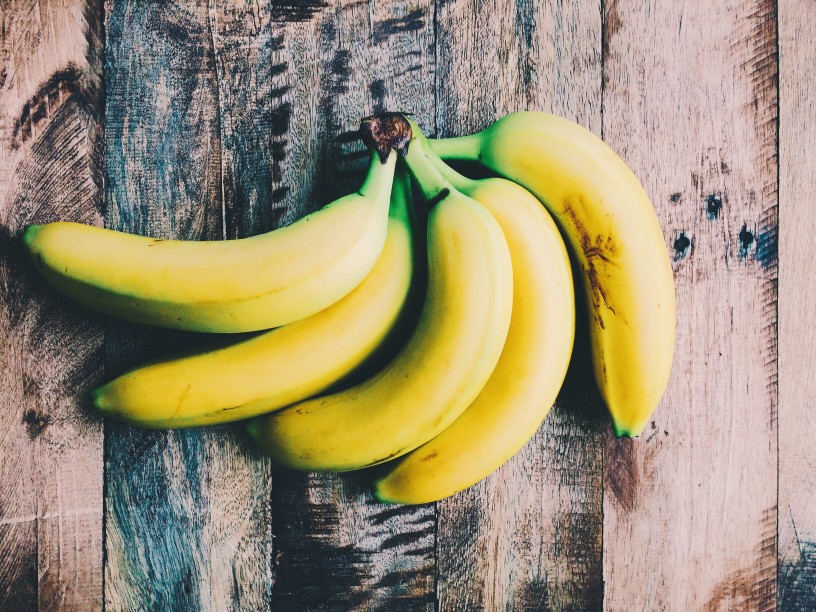What foods are good for digestion? Listed below are some of them. These include high-fiber foods, low fat proteins, Bananas, and white rice. What makes them so good for digestion? Here are some foods that can help you get rid of bloating faster. Try some of them out today. You’ll be glad that you did. And don’t forget to follow a healthy eating plan for a faster digestion!
High-fiber foods
If you’re looking for ways to improve your digestion, consider adding high-fiber foods to your diet. There are many foods that contain fiber, both insoluble and soluble. In general, more natural foods have more fiber than processed and refined foods. Although meat, dairy products, sugar, and some other foods contain fiber, most processed or refined foods have most of it removed. Therefore, fiber-rich foods are better for you than processed and refined foods.
Food transit time is variable. For some people, food may take up to 24 hours to pass through, while others may have much shorter transit times. The transit time depends on several factors, including the amount of exercise you do, the amount of psychological stress you’re under, and your general health. A high-fiber diet should be added gradually to help improve your digestive system and relieve chronic constipation.
Low-fat proteins
Eating lower-fat proteins can speed up digestion. A Mayo Clinic study found that food transit times through the large intestine were on average 33 hours for men and 47 for women. Although low-fat protein can speed digestion, more fat-containing foods could increase your risk of GI irritation. Additionally, fatty foods can increase the amount gas produced, which can hinder digestion.
The digestibility of protein depends on the source and processing methods. Incomplete digestion can increase colonic microbial protein production, which is linked to inflammation in vitro as well as in vivo. It is therefore crucial match the protein source with the digestive capacity of a given individual. This article will discuss various food processing techniques and physiological conditions and suggest how to match low protein digestibility with higher-digestible sources.
Bananas
Did you know that bananas are good for digestion? They are rich in fiber, three grams of which is good for your gut. Bananas are a good choice for the digestive tract because they are high in fiber. Bananas also contain probiotics, which feed healthy gut microbes. This means that they can also help with constipation! Bananas are great for pre-bedtime snacks!

Despite their high potassium content, bananas contain little to no calories. Banana fiber is mostly insoluble, so it may aid in digestion. But there are some caveats to eating bananas. High potassium levels can cause kidney problems. If you’re not sure, talk to your doctor. Bananas should be consumed in moderation. You don’t need a lot of fiber every day! An average-size banana contains about three grams of soluble fiber, which is about 10 percent of your daily needs. Soluble fiber may be helpful for maintaining good cholesterol levels, easing inflammation, and regulating blood sugar.
White rice
There are numerous benefits of eating white rice, from its mild flavor to its health-boosting properties. White rice is bland, and tastes like nothing, but it’s the most popular starch in most countries. White rice is very digestible when combined with water and fiber. It is a popular choice for many people. Here are some ways to make your next meal better and more beneficial for your digestion. A banana can be a good addition to your meal. It provides fiber and carbohydrates and can aid in digestion.
White rice is easier to digest because it doesn’t contain bran, germ, fiber, or other nutrients. Because of this, it allows the body to absorb nutrients more quickly. This is especially beneficial for people who want to do more intense physical activities. White rice is an excellent choice for athletes because it is low in calories and provides fast energy. White rice is also more digestible than brown rice and can be eaten by itself without worrying about GI issues.
Non-fat yogurt
Yogurt contains 6-8 grams of sugar per serving, but you can make it more nutritious by choosing a low-sugar or plain version. You can still add toppings and berries if you like. Non-fat varieties contain about 11 grams of sugar or less per serving. According to Well+, an online community for wellness insiders consumers who consume yogurt regularly tend to be more healthy. But what is the best yogurt to buy?
Yogurt is a healthy food. However, some people may prefer a different choice for breakfast or snacks. Avoid dairy-based yogurt if you have an allergy to milk or lactose intolerance. Plant-based varieties may be more suitable. Yogurt can also improve bone health. It is made from cultures that aid digestion. While consuming yogurt, you should avoid foods that have added sugar. This includes those made from cow’s milk.
Lentils
Lentils are a high-fiber food that helps the body digest large amounts of protein, fat, and carbohydrates. Lentils can be added to many dishes such as soups, salads, and patties. Lentils are easy to add to a meal and can be bought in many sizes and colors. Lentils are available in red, brown, yellow, and green varieties, and can be used in soups, salads, and side dishes.
Lentils are also high in fiber, which increases your feeling of fullness. This fiber helps to reduce your appetite and lower your overall calorie intake. They can also help maintain your digestive tract, prevent constipation, promote regular bowel movements, and improve digestion. Lentils can be a good option for constipation prevention. You’ll be surprised by how much easier digestion can be. Lentils are great for your health and the environment.
Split peas
Split peas are high in fiber. They slow down sugar absorption and help regulate blood sugar levels. Soluble fiber slows down the release of glucose into the bloodstream to prevent spikes. They are also high in tryptophan, which helps to produce serotonin, a hormone that regulates mood and sleep. People with diabetes can greatly benefit from split peas’ fiber. Here are five reasons you should eat more split beans.
Split peas contain high levels of fiber. Each 1/2 cup serving contains about 8 grams of soluble fiber. Soluble fiber slows down digestion, which reduces the risk of high cholesterol and heart disease. Other health benefits of split peas include being low in calories and rich in nutrient-dense food. They are an excellent source of vitamins A and B, potassium, and magnesium, which support healthy blood pressure and the nervous system.
Soybeans
Soybeans are a great source of protein. Soybeans are a great alternative to meat and dairy products due to their high protein content. But there are concerns about soy. Although soy does make digestion quicker, it contains compounds that can interfere with normal hormone production and increase the risk of breast cancer. Some health experts discourage soy from eating because of its estrogen-like properties. But Bauman emphasizes that the benefits of soy are not overwhelming, and that there are some ways to limit the amount of soy in your diet.
Soybean meal contains trypsin inhibitors. These are antinutritional substances that bind to trypsinogen. These enzymes slow down the digestion of proteins. Soybean meal also contains phytates which inhibit the conversion of amino acids into active forms. Consequently, soybeans make digestion quicker. Soybeans also contain all the antinutritional factors found in human foods.
Eggs
Eggs are not an exception to this rule. Fat digestion takes time. They make your digestive system clogs up with more oxygen than you expect. This means that nothing else can be processed effectively until your eggs have been fully processed. As a result, anything that you put on top of eggs can’t pass through your body effectively. For this reason, you should avoid eating eggs before important meetings. However, you can enjoy a couple of eggs a day if you’re in the mood for some fat-free food.
In addition to being easier to digest, eggs also contain many nutrients that your body needs. The white part of the egg (albumen) contains most of the body’s daily requirement of protein. Egg yolks take 30 minutes to digest, while whole eggs take 45 minutes. Raw eggs can be eaten to reduce your risk of salmonella. However, you should know where to get them so that you don’t have to worry about catching salmonella.
